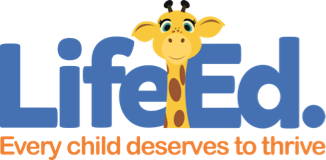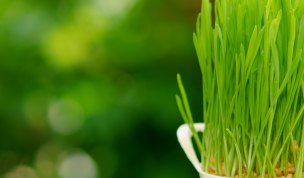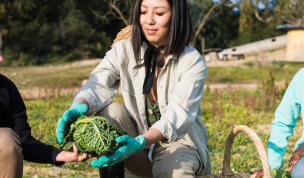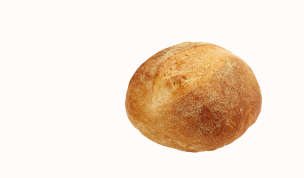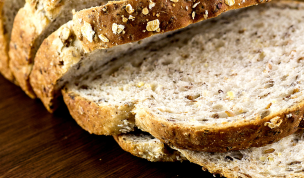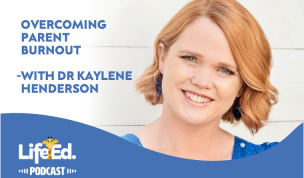Fizzy drinks everything you need to know

Fizzy drinks are everywhere, but did you know that an average size bottle can contain up to 16 teaspoons of sugar! Read our guide to help you get clued up.
Why are we talking about fizzy drinks?
Fizzy drinks are everywhere! Australians are consuming an enormous 100L of soft and fizzy drinks per head each year, and high levels of sugar and acid are leading to premature cases of tooth decay. Especially around this time of year, with Christmas festivities on the horizon, fizzy drinks make more frequent appearances at our dinner table.
What’s the difference between soft and fizzy drinks?
Soft drinks include all drinks that are non-alcoholic; this includes fruit juice, energy drinks, flavoured waters, concentrates and fizzy drinks. In many cases, they contain artificial sweeteners and sugar. Fizzy drinks and energy drinks contain phosphoric acid and carbon dioxide to provide the characteristic fizz and tang.
What is actually in fizzy drinks?
Fizzy drinks can contain any of the following: sugar, high-fructose corn syrup, sweeteners including sucralose, acesulfame potassium and aspartame, flavourings, colourings, caffeine and preservatives. Of course, not all your fizzy drinks will contain all of those ingredients.
Fizzy drinks and tooth decay
Fizzy drinks contain phosphoric acid, this is what gives them their signature ‘tang’ and stops them from going flat. Unfortunately phosphoric acid is also extremely damaging to your teeth. Phosphoric acid works by leaching the calcium from your bones and causing them to weaken; when consumed in fizzy drinks this acid removes your teeth’s protective enamel and causes them to gradually decay. There have been reports that have suggested children who drink 3 or more cups of soft drinks per day are 46% more likely to have decayed or missing teeth. (healthykids.com.au)
Sugar and child obesity
Sugars are a form of carbohydrate which provides our bodies with energy – our bodies need sugar to work properly. When extra sugar is added to food and drinks, it provides a ready source of energy (kilojoules) but no other essential nutrients, such as protein, minerals, vitamins or dietary fibre. When we eat too much sugar our body can’t process it and it can lead to health problems like obesity and tooth decay. Unfortunately, sugar is hidden in many of our kid’s favourite foods, even in savoury foods, and in high quantities in fizzy drinks.
For an average 14-year-old girl, drinking a 600ml bottle of soft drink, which contains 16 teaspoons of sugar, would exceed her recommended daily energy intake from refined sugar – that’s a whole day’s sugar in just one drink.
If your family is looking to reduce your sugar intake you can read our blog from a mum who did just that.
But diet drinks are ok, right?
Unfortunately not, diet varieties still contain phosphoric acid that wears away your teeth and high levels of sugar and artificial sweeteners. By drinking diet beverages, which are low in calories, we can trick our bodies into not associating sweetness with calories and therefore our bodies can develop a habit and continue to choose sweet foods over nutrition foods.
Over the years concerns have been raised around the safety of artificial sweeteners, they have been deemed safe to drink in small amounts, but the jury is still out on this one!
Sucralose, acesulfame potassium and aspartame – what are they!?
Sucralose, acesulfame potassium and aspartame are all artificial sweeteners found in soft drinks, especially diet and low-fat versions.
Sucralose: sucralose is around 320 to 1,000 times as sweet as table sugar. Stable under heat it is regularly used for products with a longer shelf life.
Acesulfame potassium: At nearly 200 times sweeter than table sugar, acesulfame potassium is often found blended with another artificial sweetener to give a more authentic sugar taste.
Aspartame: although not a sweet as sucralose, aspartame provides a sweetness that lasts longer. Although there has been controversy around the consumption of aspartame it has been found to be safe for human consumption worldwide.
What are our alternatives?
Water! Our bodies are made up of 60% water – we need it to keep our bodies working, hydrated and full of energy. It has no acid, no sugar, no kilojoules and it’s free if you drink from the tap!
Nutritionist Dr Rosemary Stanton says that we should try to avoid soft and fizzy drinks as much as possible. Speaking to ABC she said that both diet and regular drinks have ‘a heap of preservatives and colourings and flavourings and other things you basically don’t need’.
But, fizzy drinks are still ok in small amounts and should be viewed as a sometimes food. In order to prevent damage to your teeth if your child is drinking a soft drink give them a straw and encourage them not to swill it around their mouths to limit contact with their teeth
